Our Advisory Team
To ensure our volunteers are appropriately trained and supervised we are very fortunate to have an active advisory team of leading professionals to provide supervision, ongoing training and practical advice on a pro bono basis, and we are most grateful for their time and very generous support.
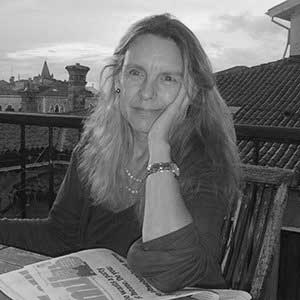
Dr Gwen Adshead
Advisory Team
Dr Gwen Adshead is consultant forensic psychiatrist and psychotherapist at Broadmoor Hospital where she has worked intermittently for nearly 30 years. She has also been a visiting professor of Psychiatry at Yale school of Law and Psychiatry in 2013 and at Gresham College between 2014 and 2017. Gwen qualified in medicine in 1983 and was elected member of the Royal College of Psychiatrists in 1987 before being made a Fellow of the Royal College of Psychiatrists in 2005. She has a Masters’ Degree in Medical Law & Ethics, is a qualified member of the Institute of Group Analysis and holds a Master’s Degree in Mindfulness based Cognitive therapy.
Gwen has specialised in the assessment and treatment of complex cases, including cases involving personality dysfunction, abnormal illness behaviour and child maltreatment and trauma. She has also contributed to the work of the Royal College of Psychiatrists as chair of their Ethics Committee and to the Department of Health policy in relation to abnormal maternal illness behaviour.
In addition to being a practising clinician, Gwen has authored over 150 academic papers in books and journals. She is the co-editor of several books including Ethical Issues in Forensic Mental Health Research (with Dr Christine Brown) and Clinical topics in personality Disorder (co-edited with Dr Jay Sarkar). The latter was awarded first prize in the Psychiatry Section at the BMA Book Awards in 2013. Gwen’s most recent book ‘The Devil You Know: Stories of Human Cruelty and Compassion’ (co-authored by Eileen Horn) is about compassion and care for offenders. It was published by Faber in June 2021.
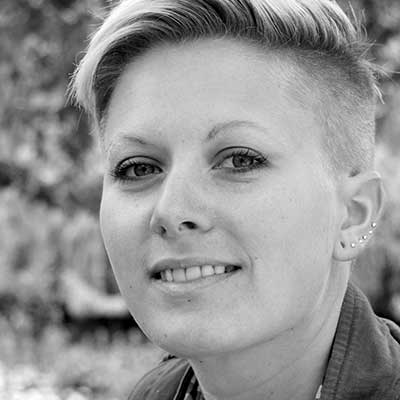
Dr Chloe Beale
Advisory Team
Dr Chloe Beale is Consultant Liaison Psychiatrist at Homerton University Hospital and Suicide Prevention Lead for East London NHS Foundation Trust. She is also Honorary Senior Clinical Lecturer at Queen Mary University of London. She holds a Master’s Degree in medical law and has a particular interest in mental capacity and legal and ethical aspects of suicide, a subject on which she speaks frequently to a variety of agencies.
Chloe advocates for a pragmatic and open approach to suicide risk and takes any opportunity to challenge risk-averse, stigmatising and defensive culture within mental health services. She is a great believer in the vital role of the third sector in supporting people who are suicidal. Chloe is interested in collaborative working between psychiatry and other medical specialties and mental health training and education for non-mental health professionals.
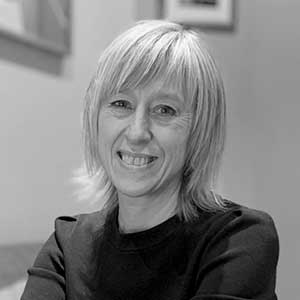
Dr Susan Cottam
Advisory Team
Susan is a Clinical Psychologist employed by the Tavistock and Portman NHS Foundation Trust since 2011. She works at Camden MOSAIC CAMHS, a community service for children with autism and other neurodevelopmental conditions.
Her clinical role involves supporting parents, families and children in the ongoing task of adjustment to neurodisability, and supporting the skills development required to live with neurodisability. She is interested in parenting, the development of the attachment process between parents and children, the parent couple relationship and the way in which parents adapt to the experience of grief and loss. She has a special interest in supporting the management of behaviours of concern and sleep to improve child and family wellbeing. Susan has published research in peer reviewed journals on parenting training programmes, positive behaviour support and also the subjective experience of hearing voices.
Susan volunteered as a Samaritan for several years in the run up to professional qualification and is committed to supporting those who feel suicidal or hopeless.
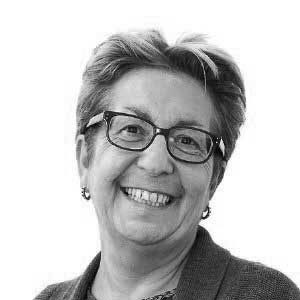
Dame Teresa Graham FCA DBE
Advisory Team
Teresa joined the Newcastle upon Tyne office of PWC as a student accountant and many years later was honoured with an honorary Fellowship. In 1986, she was seconded to the UK Government’s Enterprise and Deregulation Unit reporting directly to Lord Young, the Secretary of State for Employment and then Trade and Industry. In 1988 she was appointed to the Government’s Deregulation Advisory Panel and served through two decades of administrations, most notably as Deputy Chair.
Teresa joined Baker Tilly (now RSM) in 1989 and during her time there she headed up their Business Services Department.
She now works independently focusing on her three passions – strategic advice to ambitious, growing businesses, liberating these businesses from the fetters of red tape and “Head of Parties and Fun” at The Lexi Cinema, a social enterprise, digital, boutique cinema in North London covenanting 100% of its profits to a charity in South Africa called The Sustainability Institute Trust. She holds a number of appointments, including non-executive, mentoring and advisory roles in growth businesses.
She is currently Chairman of the Administrative Burdens Advisory Board of HMRC and a member of the Treasury’s Office of Tax Simplification. She was also a past Chair of the Regulatory Board of the Royal Institution of Chartered Surveyors receiving an honorary membership in recognition of her contribution to the Institution. She chairs the SME Advisory Group at UK Finance.
Teresa was awarded a DBE in the 2020 New Year’s Honours List for services to Small Businesses, a CBE in the 2007 New Year’s Honours List for public service and an OBE in the 1997 New Year’s Honours List for services to better regulation and the small firms sector.

Professor Stephen Platt
Advisory Team
Stephen Platt is Emeritus Professor of Health Policy Research at the University of Edinburgh. He has a lifetime research interest in social, epidemiological and cultural aspects of suicide, self-harm and mental health and ill-health. He has been particularly concerned with the influence of socio-economic inequalities (including labour market conditions and economic recession) on the incidence of suicidal behaviour and with the challenges of developing evidence-informed strategies and approaches to suicide prevention.
Stephen contributed to the development of Choose Life, a National Strategy and Action Plan to Prevent Suicide in Scotland and led a consortium of researchers who undertook a formative evaluation of the first phase of the strategy. He is an adviser on suicide prevention research and policy to the Scottish Government National Suicide Prevention Leadership Group (NSPLG) and is co-chair of the NSPLG’s Academic Advisory Group.
Stephen has contributed to the development of Connecting for Life (2015), Ireland’s most recent national strategy to reduce suicide, and devised an outcomes framework intended to support the evaluation of its impact. He continues to act as a consultant to the Irish National Office for Suicide Prevention, providing advice on the implementation and evaluation of the suicide prevention programme.
Stephen has been involved in policy development and analysis relating to public mental health and mental health improvement, and has extensive experience of successful collaboration with policy planners and practitioners working in these areas. He has published on conceptual and methodological aspects of well-being and is co-developer of the Warwick-Edinburgh Mental Well-being Scale (WEMWBS). He acts as a consultant and advisor to 4 Mental Health and Connecting with People; he is a member of 4 Mental Health’s international Expert Reference Group.
Stephen is a former trustee of the Mental Health Foundation, Samaritans and Evaluation Support Scotland. He is a former Vice-President of the International Association for Suicide Prevention.

Richard Spence
Advisory Team
Richard Spence is a psychotherapist in private practice. He works with people facing challenges including anxiety, depression, low self-esteem, addiction, bullying, bereavement, trauma and chronic suicidality. He holds a Masters degree and Clinical Diploma in Gestalt Psychotherapy.
Richard marvels at people’s capacity to adapt to difficult circumstances; he believes compassionate and candid support can reveal ways of being which may once have served a person well but can now be softened and let go.
Richard was the first Chair of Trustees and a Trustee for the Listening Place for six years. He was a Samaritan for fifteen years and a co-director of Central London Samaritans. As well as being a psychotherapist, he works globally as an Executive and Team Coach and supervisor; previously he had a long creative career as a BAFTA-winning film and television director in the UK and USA.
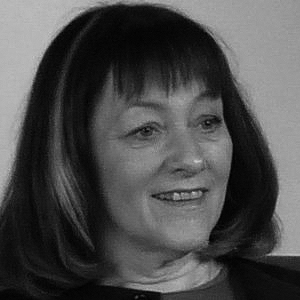
Suzanne Thomas DHC, MRes
Advisory Team
Suzanne Thomas is an Ericksonian Hypnotherapist and Counsellor. She has practised as such since 1986 when she qualified with honours from The UK Training College for Hypnotherapy and Counselling. Being a Samaritans volunteer was the catalyst for a career change.
Suzanne practises in South Kensington seeing people with all the difficulties in being a human being. She continues to study and attend workshops, seminars, conferences and other training on all related aspects and teaches counselling and hypnotherapy and supervises therapists. She also enjoys hugely supervising TLP volunteers monthly.
Before becoming a hypnotherapist she was a stylist in advertising and co-founded a record company. In 2006 she gained a Masters in Research in Art and continues to practice as an artist. She is an accredited member of NCH and a senior member of GHC.
For Suzanne, hypnotherapy brings together interests in psychology, creative imagination and goal focused therapy.
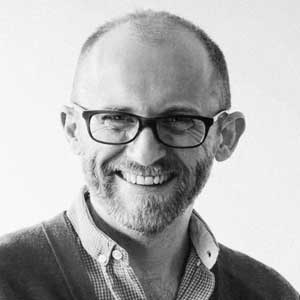
Dr Sam Thompson
Advisory Team
Dr Sam Thompson is a clinical psychologist and splits his time across two different NHS services. In East London he works in a psychological therapy service for adults with complex mental health problems, many of whom have experienced chronic abuse and trauma. He is also lead psychologist for staff support in the emergency department at St. Thomas’ Hospital.
Sam came to clinical practice following a career in the policy and academic worlds. After a PhD in social psychology he worked for a prominent think-tank, leading projects for various government departments and publishing widely on the psychology and politics of happiness. He also held the posts of Senior Lecturer in positive psychology at the University of East London, and Senior Research Fellow in public mental health at the University of Liverpool. During this period Sam volunteered at Central London Samaritans, holding various supervisory and training roles. He was amongst the first Samaritans volunteers to facilitate support groups for people bereaved by suicide, for the Facing the Future project.
Now a full-time clinician, Sam regularly provides supervision, consultation and training to mental health professionals and others. In addition to his work with The Listening Place, he is also a member of the British Red Cross / Foreign Office Psychosocial Support Team, responding to international emergencies involving British nationals.

Professor Peter Tyrer
Advisory Team
Peter Tyrer is the Emeritus Professor of Community Psychiatry in the Division of Psychiatry in the Department of Brain Sciences at Imperial College, London.
His main interests are in models of delivering community psychiatric services, the classification and treatment of common mental illnesses, particularly anxiety and health anxiety, and the classification and management of personality disorders. He also leads on research into a common but largely unrecognised condition, health anxiety.
He is experienced in the management of those with severe mental illness, substance misuse and personality disorder and has developed a new treatment, nidotherapy, to help these people by making environmental, not personal, changes. Much of his recent work has been concerned with improving and extending the concept of personality disorder, including its use in adolescence, when it is not formally recognised and badly managed. This is highly relevant to suicidal behaviour in young people.
He has chaired three NICE Guideline Development Groups on personality disorder, comorbid psychosis and substance misuse, and management of violence. He has written 39 books on these subjects.
Professor Peter White OBE
Advisory Team
Peter White is Emeritus Professor of Psychological Medicine at Queen Mary University of London. He was a consultant liaison psychiatrist at St Bartholomew’s Hospital and co-led the chronic fatigue syndrome (CFS) service there until his retirement in 2016.
He qualified in medicine at St Bartholomew’s Hospital Medical College, and then trained in general medicine in Southampton, after which he received his psychiatric training at the Maudsley and St Bartholomew’s Hospitals.
Research interests have included illnesses affecting both mind and body and understanding the links between them. More recent studies have explored the factors leading to poor quality of life after cancer, and developing interventions to improve it.
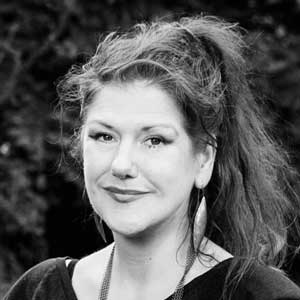
Dr Teresa Wolowiec
Advisory Team
Following a first career in documentary photojournalism, Dr Teresa Wolowiec retrained as a Clinical Psychologist, and now specialises in working with individuals with complex psychological and social difficulties. She enjoys finding effective and creative ways to explore positive change, and has extensive experience in supporting staff teams to work helpfully and hopefully with challenging mental health issues. After ten years working in forensic mental health services, she is now the lead psychologist in Psychiatric Liaison at Whipps Cross Hospital in north east London. She is a passionate supporter of reflective practice, facilitating and supervising reflective practice sessions with NHS staff, to explore alternative perspectives in addressing complex problems. Teresa also has a long history of working with individuals experiencing gender dysphoria, conducting research, teaching, assessments and therapy in this area.
Believing that mental health is fundamentally a social justice issue, Teresa is interested in the application of psychology to the broadest range of sociocultural and political issues. She has recently published work exploring the impact of culture and diversity on reflective practice.

Dr Vicky Ropner
Advisory Team
Dr Vicky Ropner is a Counselling Psychologist specialising in PTSD and Complex PTSD She currently works in the Traumatic Stress Clinic at St Pancras Hospital. Vicky has previously worked in a drug and alcohol service, UCL’s student psychological services and in integrated psychological therapy teams at the Maudsley and Lewisham hospitals. She also worked in the trauma service at Transport for London, working with train drivers and station staff with PTSD.
Vicky has been a volunteer at TLP since its earliest days. She joined in 2016, after three years as a Samaritan. She was a supervising volunteer for five years, and now delivers and develops internal training and provides group supervision. She has a particular interest in supporting the mental health of volunteers.



